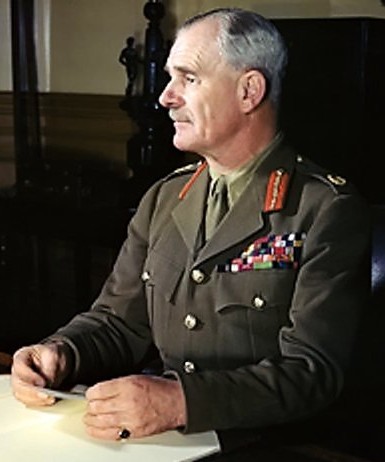General Archibald Wavell
General Archibald Wavell was a senior figure in the British army who fought in the Boer War, World War One and World War Two. During World War Two he served in North Africa, India and the Pacific.
Born in 1883, General Archibald Wavell was educated at Winchester and Sandhurst. At Sandhurst he came first in his class and joined the army in 1901. In the Boer War he won five medals for distinguished service.
At the start of World War One, Wavell travelled to France for the British Expeditionary Force (BEF). He fought in the Battle of Ypres, where he was seriously wounded and lost his left eye. Regardless of his injuries, Wavell was still in the British Army and served in Palestine later in the war with the 20th corps.
In 1939, Wavell had the task of creating the Middle East Command. The primary role of this unit was to protect the Suez Canal and oil reserves. An attack by Italy was most likely at this time.

In 1940 Benito Mussolini sent more than one million men to Northern Africa, although Wavell’s force contained only 36,000 men. From Libya, the Italians made significant advances towards the Suez Canal, but came to a stop at the British defences at Mersa Matruh. Wavell commanded there be a major British counter-attack right at the end of December 1940. This pushed the Italians back almost 500 miles, and Tobruk was taken from them in January 1941.
However, this Allied success encouraged Hitler to send troops to North Africa. The Afrika Korps, led by Erwin Rommel, soon arrived. Around March 1941, Rommel was ready to launch an attack on the British. He successfully drove them out of Libya, but the British held on to Tobruk. Wavell tried to counter-attack in June 1941, but this was stymied at the Halfaya Pass by the Germans. This was a blow to Wavell’s reputation and Winston Churchill lost confidence in him. General Claude Auchinleck replaced Wavell.
After his time in North Africa, Wavell was given the role of Commander-in-Chief of British troops in India. After the attack on Pearl Harbour in December 1941, the Pacific was swamped by war. Wavell's was tasked with organising regional British forces and ensuring that British territories were protected from an attack by the Japanese.
When Japan officially declared war on the British in December, Wavell became Commander-in-Chief of the American-British-Dutch-Australian Command. As was the case in North Africa, he was again given control of an undermanned region.
By February 1942, the Allied situation in the Far East was shaky. Malaya had been taken by the Japanese, who also looked set to take Sumatra and Java. The American-British-Dutch-Australian Command was discontinued and Wavell returned to his role as Commander-in-Chief of India. One of his responsibilities was to protect Burma against the Japanese, but Allied Troops withdrew by May 1942.
Wavell was promoted to Field Marshall at the beginning of 1943. Several months later in June, Auchinleck again replaced him in his military post. In July 1943 he became Viscount of Cyrenaica, and in September he was made Governor-General and Viceroy of India. Lord Louis Mountbatten replaced Wavell in India 1947.
Archibald Wavell died aged 67 on 24 May 1950.
See also: War in North Africa
MLA Citation/Reference
"General Archibald Wavell". HistoryLearning.com. 2026. Web.
